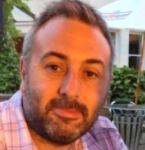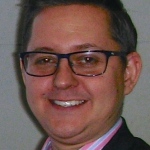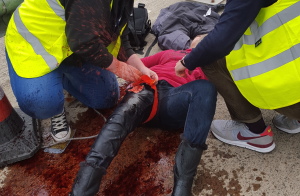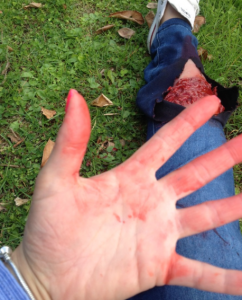Archives for case studies
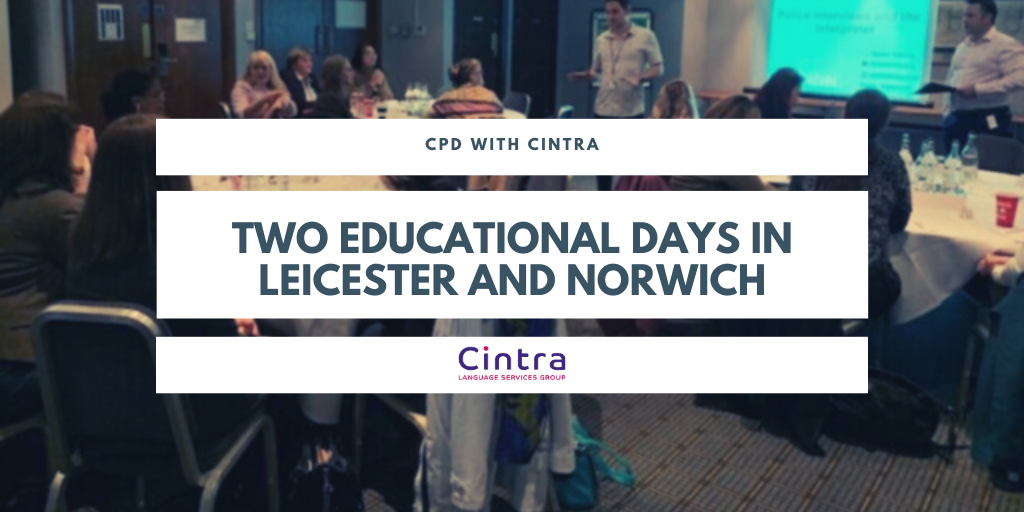
For a successful and well-prepared interpreter, continuous professional development (CPD) is a must, and here at Cintra we take this very seriously. We make sure that our linguists have regular access to high-quality CPD events that help them become better professionals and ensure they can keep up with the latest hot topics and regulations within their fields.
As Tamás Kovács, our Human Resources Advisor explains: “The importance for linguists to attend our CPD events is mainly to further improve their knowledge and interpreting skills within a specific area. All major interpreting and translation qualifications heavily focus on interpreting and translation techniques and they often miss out vital parts like interpreting environment, personal safety and extra precautions. For example, the Zakon police CPD event in July explained and demonstrated the key rules which are to always safeguard yourself, know the exit routes and never be left alone with the victim or witness.
Apart from the specialised training these CPD events deliver (e.g. mental health, police training, human trafficking), another fantastic opportunity for our interpreters is to network with other linguists, learn the best practices and also, to meet and speak with Cintra staff members. Many linguists join our CPD events because of the great networking opportunities and also, to find out in what ways Cintra can help improve their qualifications and language skills.”
In the past two months we organised two special CPD events, one in Leicester and one in Norwich. The one held in Norwich on 23 November focused on interpreting for the police and advanced interviews. As Tamás said, we had a very similar event in the summer. After our July event, we received so much positive feedback from our interpreters who attended, that we decided to organise another training day on the very same topic with Zakon, so those linguists who missed the first one might also participate.
We held our other CPD day on 18 October in Leicester on transgender awareness with the help and support from Leicestershire Police. The session helped raise the visibility of transgender and gender non-conforming people, increased the linguists’ cultural awareness, knowledge and communication skills, it explained the rights and wrongs and what the Gender Recognition Act says. It mainly focused on the issues for police, custody staff and linguists. The session was led by Jane Chaplin and Penny Ellis from Warwickshire and West Mercia LGBT Independent Advisory Group and Lynne Woodward, Head of Equality and Human Rights at Leicestershire Police.
The linguists who attended these two events gave us very good feedback, saying these CPD days helped “fill gaps in [their] knowledge and refreshed earlier training that had been undertaken in this area.” They found them “very informative and professionally delivered”.
If you are interested in attending one of our future CPD sessions or have any feedback or suggestions, please do not hesitate to get in touch with Tamás via email at hr@cintra.org.uk or by calling 01233 346870.
Cintra is like a machine with many interconnected and intricate pieces that have to align perfectly so that we can provide a great service to our customers. One part of this machine is, of course, our highly experienced and trained interpreters who are out there in the world, helping you communicate and make sure you can get your message across. However, out of public view there is a whole team of busy Bookings Coordinators who make sure that the right interpreters get to you at the right time, and help that Cintra machine stay well-oiled and run smoothly.
Today we’ve caught up with Bookings Team Manager Ursula Fairhurst to ask her about what her team do and how they can help you. …read more
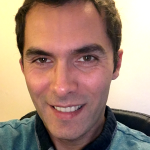 It was years ago when an old colleague asked me what I planned for my future. Surprised by his question and knowing that he was passionate about computers I said I liked the English language. He laughed saying, “I could make a future for myself with my computer – what future could you make with your English?” That was more than 20 years ago, back in my native country.
It was years ago when an old colleague asked me what I planned for my future. Surprised by his question and knowing that he was passionate about computers I said I liked the English language. He laughed saying, “I could make a future for myself with my computer – what future could you make with your English?” That was more than 20 years ago, back in my native country.
I eventually made the decision to live in the UK and have been settled here for the past 13 years. During that time I have made a lot of English friends who visited my country for my wedding, where I acted as their interpreter. I felt important; I was their communication bridge.
It was then I realized that being fluent in English was not enough. It was difficult to process quickly in my head the English language into my native language and vice versa. Although I thought I had “good English”, that seemed not to be sufficient. I had a passion for the language and I had to find a way to improve my abilities. …read more
How do clients use our translation services in the real world?
Meet Alistair Hollington, Managing Director of Lazarus Training. This Essex-based company has a core team of 24 trainers whose focus is providing practical, hands-on safety and first aid training. In line with his background as an Army medic, Alistair’s company specialises in extreme training – offering courses to close protection details – that’s bodyguards to you and me – as well as care providers; trauma and hostile environment training alongside paediatric first aid.
Clients include small and medium businesses and large corporates, as well as what Alistair refers to simply as law enforcement agencies. (“Can’t say anything else about them,” he hints.) Lazarus Training are well known in media circles too. On-screen credits include work as consultants to the BBC’s hit programmes Top Gear (pictured below) and Trust Me, I’m a Doctor.
Over the last 18 months Alistair has extended the company’s client-base overseas, running bespoke courses in very different environments, from the Czech Republic to Lebanon by way of Sudan. We support that growth, providing translations into French, German, Czech, Arabic and Farsi.
We support Lazarus Training’s international expansion with expert translations of key training materials.
I’m Anthony Gray, Cintra Translations’ Business Development Manager.
I asked Alistair why he approached us in the first place:
Alistair: I wanted a safety net. We’re a young company and expanded abroad because a UK client asked us to train their teams in France, Germany and the Czech Republic. As we work in English, they asked us for a crib sheet of key terms they could translate and hand out to their staff as part of the training. Unfortunately, our client used random staff members to translate, and they were translating the words literally. That really wasn’t going well for us in training sessions. When I realised our image was suffering and that we needed a safety net, I looked for help from a professional translation agency.
Language stops being an issue and Lazarus can be more effective at what we do.
Anthony: How much of a difference has involving professional translators made?
Alistair: In the first few interactions we had with Cintra, you gave me confidence. And as soon as you supplied us with that first spreadsheet with all the proper terms translated, we could see that in every case the new wording was working.
We’re experts at what we do, but we don’t speak multiple languages, so we train in English. We do understand that can be an issue. For example, when we’re working with factory hands in the Czech Republic, we’re aware of the sort of reaction we’d get if we walked onto a shop floor in Essex and started giving the workers emergency resuscitation instructions in Czech!
We do have a local English-speaker working with us, but communicating can still be a challenge. The materials Cintra provide take the edge off it. The language stops being an issue and we can be more effective at what we’re doing. My client’s happier, basically.
Anthony: How do your trainers use the material we translate for you?
Alistair: Trainees get a crib sheet. And we include the English terms and their local translations in our PowerPoint presentations. (We do most of our work in the field, but there’s always a bit of classroom learning!)
Cintra also give us help with pronunciation, and that’s helping the Lazarus team learn some useful words and important medical terms in the local languages. Everyone at Lazarus has a background in the emergency services or the armed forces, so we all understand how important it is to communicate clearly in crisis situations – even when we’re just simulating emergencies.
Anthony: What are your plans for the future?
Alistair: We’re running courses in Beirut in Lebanon early in 2016, and then I’m off to Sudan. As far as the business goes, I aim to keep my clients happy and sign them up for more!
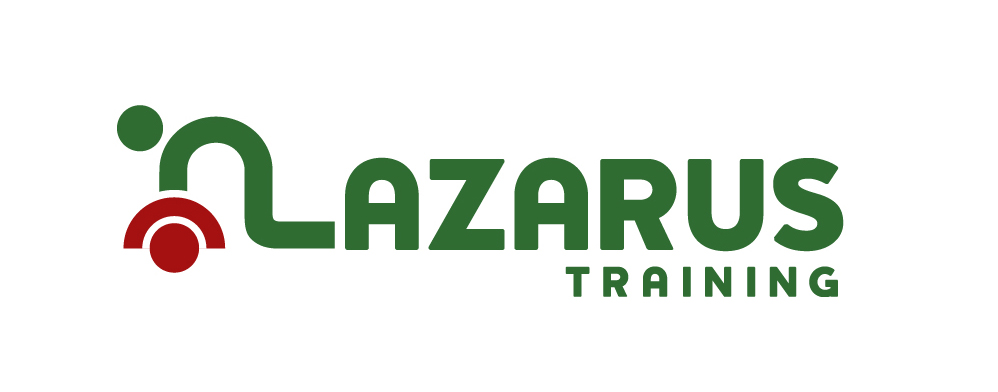 Find out more about Lazarus Training at www.lazarustraining.co.uk
Find out more about Lazarus Training at www.lazarustraining.co.uk


